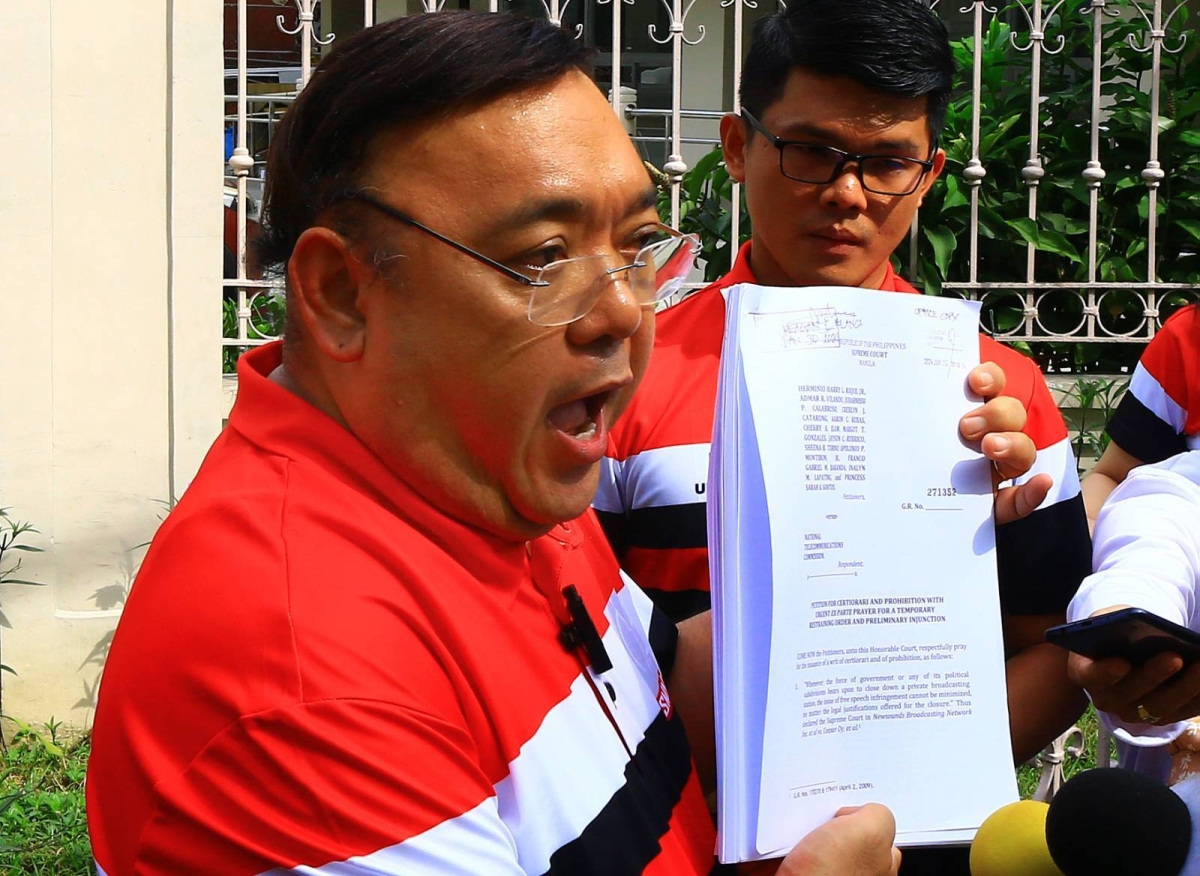Former Palace spokesman Herminio “Harry” Roque Jr., along with anchors and reporters of Sonshine Media Network International (SMNI), have taken their case to the Supreme Court, seeking to put a stop to the National Telecommunications Commission’s (NTC) indefinite suspension order against the media network’s operations.
In a 45-page petition, SMNI argues that the NTC’s suspension order is a form of censorship that lacks any legal basis. The petitioners are requesting the high court to issue a temporary restraining order and a writ of preliminary injunction to immediately halt the NTC from enforcing its earlier suspension order against Swara Sug Media Corporation, the business name of SMNI. Additionally, they are seeking a writ of certiorari to declare that the NTC committed grave abuse of discretion, exceeding its jurisdiction in issuing the assailed orders.
SMNI, the broadcast media arm of the Kingdom of Jesus Christ of Pastor Apollo Quiboloy, operates a network of radio and television broadcasting stations. The root of SMNI’s problem lies in a House Resolution that alleges the media entity violated the terms and conditions of its franchise, particularly the provision that prohibits the network from using its stations or facilities to spread false information.
The House of Representatives issued the resolution following a claim made by one of SMNI’s anchors, suggesting that Speaker Ferdinand Martin Romualdez’s travel expenses amounted to P1.8 billion. The petitioners argue that the NTC’s orders specifically target SMNI and are content-based restrictions on its operations. They contend that regardless of any purported objective, if the effect is to shut down SMNI’s broadcast operations, the assailed order must be scrutinized with a heavy presumption of unconstitutionality.
Furthermore, SMNI asserts that the NTC does not possess the power to revoke an existing franchise. Such authority, they argue, rests with the Office of the Solicitor General through a court case to cancel a franchise.
Roque, speaking on behalf of SMNI, denounces the suspension as a violation of press freedom and freedom of speech. He emphasizes the importance of protecting these fundamental rights.
This case raises significant concerns about media freedom and censorship. It is crucial to recognize that press freedom is a cornerstone of democracy, ensuring transparency, accountability, and the dissemination of information to the public. Any attempt to curtail or suppress the operations of media organizations should be subject to rigorous scrutiny.
While the specific details of this case may be unfamiliar to an international audience, the issues at stake are universal. Across the globe, media organizations face challenges to their independence, often through government interference or attempts to control the narrative. The ability to express dissenting opinions and hold those in power accountable is essential for a functioning democracy.
In this instance, SMNI argues that the NTC’s suspension order is not only an infringement on their rights but also sets a dangerous precedent for other media outlets. If the NTC can arbitrarily suspend SMNI’s operations, it creates a chilling effect on freedom of speech and encourages self-censorship among journalists and media organizations.
The outcome of this case will have implications beyond the borders of the Philippines. It will serve as a benchmark for how governments and regulatory bodies handle media freedom and the balance between press rights and potential abuses. The international community will be watching closely to see if the Supreme Court upholds the principles of press freedom and safeguards the rights of media organizations to operate without undue interference.
In conclusion, the petition filed by former Palace spokesman Herminio “Harry” Roque Jr. and SMNI seeks to challenge the NTC’s suspension order, arguing that it constitutes censorship without legal basis. The case highlights the importance of protecting press freedom and ensuring that media organizations can operate independently, free from government interference. The outcome of this case will have far-reaching implications for media freedom, not only in the Philippines but also globally.







